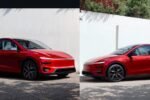Exciting! That’s the word that perfectly encapsulates the rapidly evolving automotive landscape of Gujarat. As someone who has closely followed the developments in the Indian automotive sector, I can feel the palpable energy and ambition driving the region forward. Gujarat has emerged as a global automotive hub, and I find it exhilarating to witness how companies, particularly Suzuki, are not just participating in this growth but leading it.
Let me share my perspective on how Gujarat’s favorable conditions and Suzuki’s strategic expansions in electric vehicle (EV) production are shaping the future of the automotive industry in this region.
The Strategic Location of Gujarat
One of the prime reasons behind Gujarat’s ascent as a global automotive hub is its strategic location. Nestled along the western coast of India, Gujarat provides easy access to major shipping lanes that facilitate international trade. This geographical advantage has attracted numerous automotive manufacturers and suppliers.
From my observations, the state government has worked relentlessly to create an investor-friendly environment. Streamlined regulations, tax incentives, and state-of-the-art infrastructure have collectively made Gujarat an attractive destination for automobile manufacturers. Suzuki’s decision to expand its EV production lines in Gujarat is a testament to this. The company’s commitment to this region reflects a broader trend of businesses choosing to establish their footprint in areas conducive to growth and innovation.
Suzuki’s Vision for Electric Vehicles
Having followed the automotive industry for years, it’s clear that Suzuki is not just another player in the market; it’s a pioneer when it comes to adopting electric vehicle technology. My excitement grows whenever I think about how Suzuki plans to upgrade its production lines in Gujarat to cater specifically to EVs. This move aligns with the global shift towards sustainability and green technology, issues that are close to my heart.
The company’s investment in Gujarat signifies its determination to spearhead electric mobility in India. By enhancing its EV production capabilities in this automotive hub, Suzuki aims to capitalize on the growing demand for electric vehicles domestically and internationally. The combination of cutting-edge technology with Gujarat’s competitive advantages will undoubtedly fortify Suzuki’s position as a leader in the EV market.
Local Advantages: Skilled Workforce and Infrastructure
Gujarat’s emergence as an automotive hub is made possible not just by favorable policies but also by its skilled workforce. Having visited automotive factories in the region, I can attest to the abundance of talent necessary for sophisticated manufacturing processes. Technical institutes and universities are churning out skilled graduates ready to dive into the automotive sector, providing companies like Suzuki with a continuous supply of knowledgeable professionals.
Infrastructure plays a pivotal role, too. Gujarat boasts well-developed roads, ports, and industrial parks, which significantly lower transportation costs and simplify supply chain logistics. This advantageous infrastructure supports Suzuki’s operational efficiency, allowing it to push the boundaries in EV production. Witnessing this firsthand was nothing short of inspiring, knowing that each EV produced represents not just a vehicle but a step toward a more sustainable future.
The Role of Government Initiatives
The role of the government in transforming Gujarat into a global automotive hub cannot be overstated. Policies aimed at promoting electric mobility, such as subsidies for EV buyers and incentives for manufacturers producing electric vehicles, have created an ecosystem favorable to companies like Suzuki.
From my perspective, these governmental support measures have encouraged not only Suzuki but also several other manufacturers to invest in their operations within Gujarat. The collaborative nature of the public and private sectors hints at a future rich with possibilities in EV technology and manufacturing.
Exciting Volvo EX30 EV Booking Opens August 20 – Launch in Late September at ₹40-45 Lakh Price Range
Building a Sustainable Future
What truly excites me is the vision of a sustainable future powered by electric vehicles. As Suzuki ramps up its EV production in Gujarat, it isn’t merely about selling cars; it’s about creating a cleaner and greener planet. The investments in EV technology not only promise a reduction in emissions but also foster a new culture of mobility.
I’ve met many enthusiasts in Gujarat who are passionate about electric vehicles and sustainability. The government’s emphasis on environmental responsibility, combined with Suzuki’s advancements, has sparked a new wave of interest among consumers and manufacturer
Conclusion
Gujarat has emerged as a global automotive hub, and Suzuki is at the forefront of its EV revolution. Experiencing this transformation firsthand, I can genuinely appreciate the challenges and triumphs that come with establishing a thriving automotive ecosystem in the region. The collaborative efforts of the government, skilled workforce, and innovative companies are setting the stage for a sustainable future.
For anyone interested in the automotive industry, watching Gujarat’s journey is nothing short of inspiring. Witnessing Suzuki elevate its production to meet the growing demand for electric vehicles fills me with optimism. Together, we are seeing a new chapter in the automotive world unfold, and it proudly originates from Gujarat, a place I believe will become synonymous with innovation and excellence in electric mobility.



